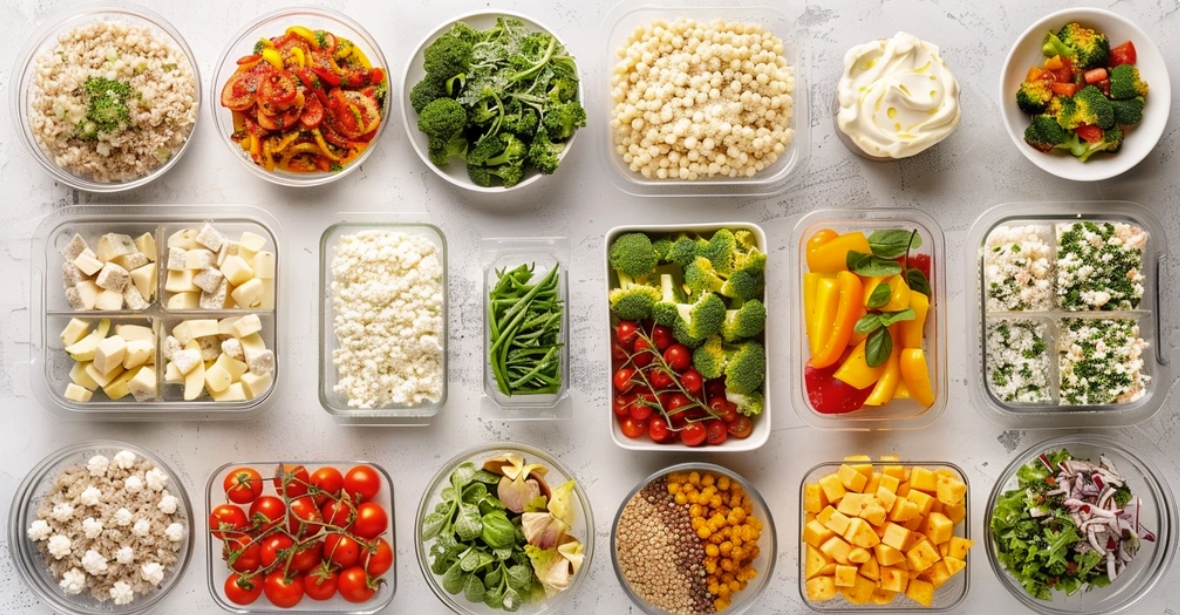1800 Calorie Diet Guide
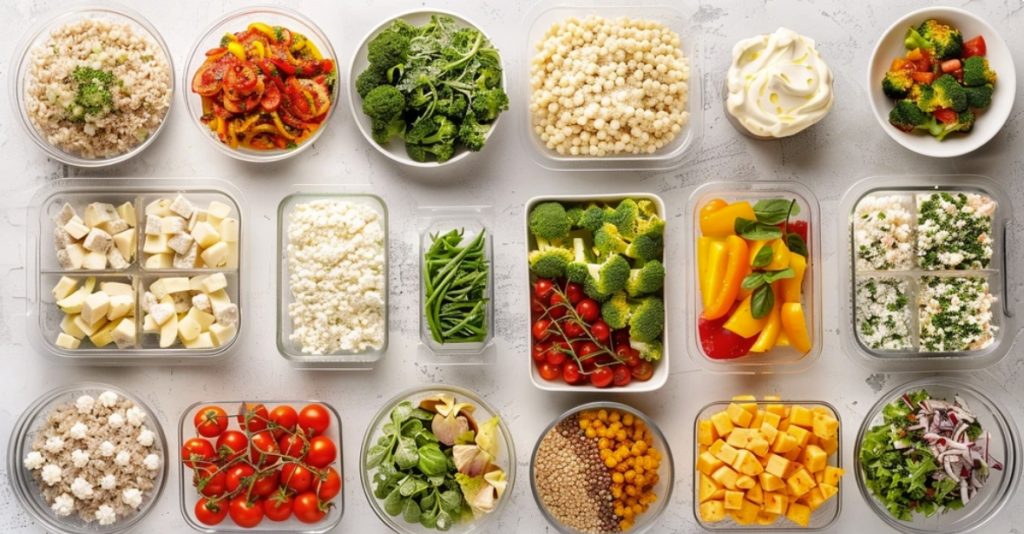
Get inspired by 1800-calorie meal plans for budget-friendly and tasty options. Achieve health goals effortlessly!
To achieve and maintain your fitness and health goals, you must manage your caloric intake. Understanding how many calories you need and how they should be distributed throughout your day is essential, whether your goal is to build muscle or lose weight. A balanced 1800-calorie diet plan provides enough energy to sustain most people’s daily activities and maintain or achieve a healthy body weight.
The calorie intake is flexible enough to meet a variety of dietary restrictions and preferences, making this calorie amount accessible for all. You can tailor a meal plan of 1800 calories to suit your dietary requirements, whether you are a fan of plant-based food, require high protein options, follow gluten-free eating habits, or any other needs. Explore how different dietary styles can be aligned with this balanced target.
Example 1800 Calorie Meal Plans
Meal Plan 1: Vegetarian Delight
Vegetarian diets can be nutritious as well as fulfilling. The meal plan features plant-based protein, healthy fats and fruits and vegetables for a balanced, nutritious diet.
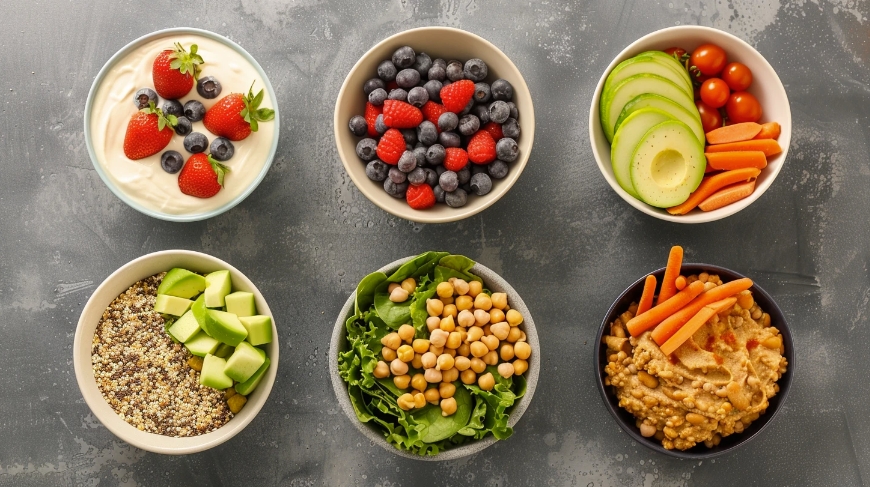
- Breakfast (325 Calories). A Greek yogurt bowl with blueberries and strawberries, and chia seed sprinkles for a high-protein start to your day.
- Snack (10 Calories). An apple with almond butter is a delicious combination of creaminess and crispness.
- (400 calories) A salad of chickpeas with greens and cherry tomatoes. It is dressed in a tahini-lemon dressing.
- Snack (10 Calories). Carrots with a quarter-cup of hummus make a satisfying and fiber-rich afternoon snack.
- Dinner (880 Calories). A generous serving of vegan chili, made from kidney beans, lentils and bell peppers with spices and served with quinoa, topped with slices of avocado for a rich, filling, protein-rich meal.
Meal Plan 2: High Protein Power
This meal plan will help you support muscle repair and growth.
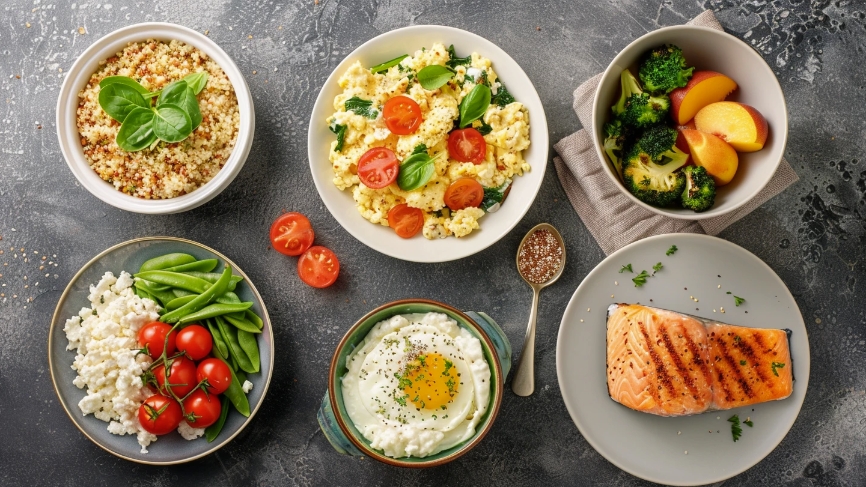
- Breakfast (425 Calories).: Eggs scrambled with tomatoes, spinach and feta, with whole grain toast. This is a good balance of complex carbohydrates, vegetables and protein.
- Snack (10 Calories). A protein shake with almond milk and spinach to boost antioxidants.
- Dinner (400 calories): Grilled Chicken Breast with Quinoa, steamed Green Beans and drizzled olive oil with lemon juice.
- Snack (10 Calories). Cottage cheese and sliced peaches make a tasty snack that is high in protein.
- Dinner (880 Calories).: A baked salmon fillet served with sweet potatoes and roasted Brussels sprouts. This is a healthy meal that’s rich in vitamins, omega-3 fats, and fiber.
The Budget Friendly Meal Plan
It’s not expensive to eat well. This menu plan is based on ingredients with a low cost but still nutritional value.
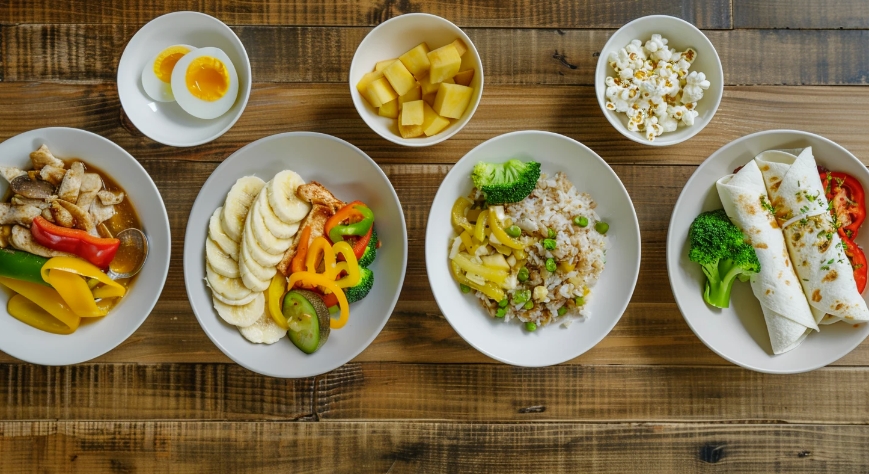
- Breakfast (325 Calories).: Cooked oatmeal with bananas, honey and water. A healthy and inexpensive way to begin the day.
- Snack (10 Calories). A hard-boiled, peppered egg.
- Dinner (400 calories): Turkey wraps with tomato, lettuce and mustard served with homemade vegetable soup.
- Snack (10 Calories).: Air-popped popcorn is a tasty and low-calorie treat.
- Dinner (880 Calories).: A homemade vegetable stir fry with bell peppers and broccoli served over brown or white rice.
The Low Carb Diet: Meal Plan 4.
The low-carb meal plan focuses on healthy proteins and fats, which will keep you energized and satisfied.
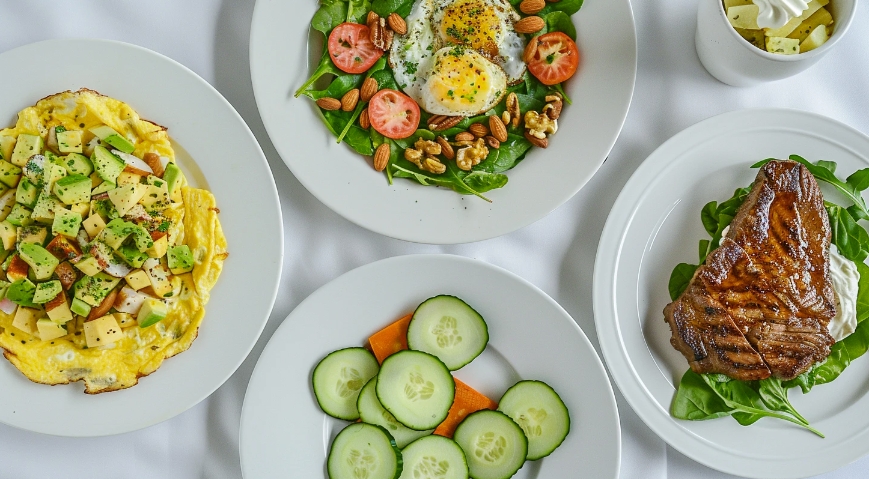
- Breakfast (425 Calories).: A breakfast omelette with cheese and ham.
- Snack (10 Calories). A serving of almonds is a healthy and convenient snack.
- Dinner (400 calories): Spinach salad with avocado and walnuts dressed in olive oil with vinegar. This is a low-carb lunch that has a lot of flavor.
- Snack (10 Calories).: Cucumber slices with cream cheese. A refreshing, satisfying snack.
- Dinner (880 Calories).: A beef steak with butter served with sauteed mushroom and green salad. This is a delicious way to end the day, rich in healthy fats and protein.
The Gluten-Free Meal Plan
This meal plan emphasizes whole grains and foods that are naturally gluten free. It offers a variety of delicious gluten-free dishes, which is both nutritious and filling.
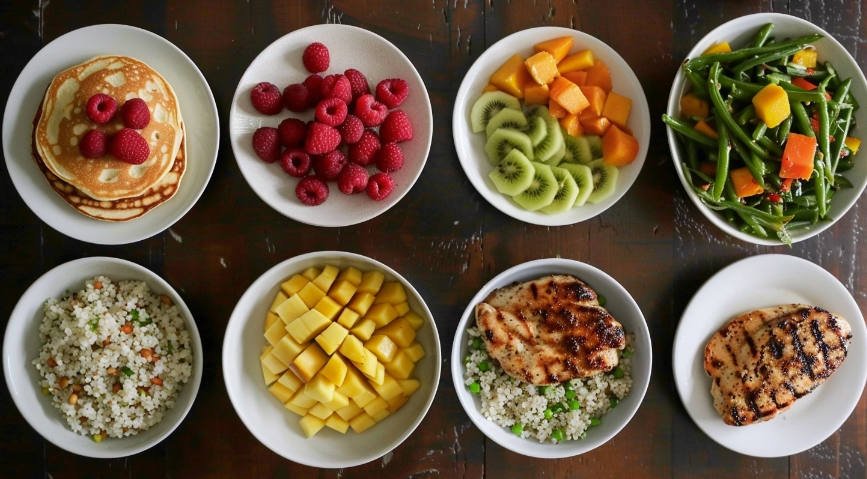
- Breakfast (325 Calories). Buckwheat Pancakes with Fresh Raspberries, drizzled in Pure Maple Syrup. A fiber-rich breakfast to start the day.
- Snack (10 Calories). A bowl of fruit mixed with pineapple, mango and kiwi, providing vitamin and sugar without gluten.
- Dinner (400 Calories).: Quinoa Salad with Black Beans, Corn, Avocado, and Lime-Cilantro Dressing. Packed with fresh flavors and protein.
- Snack (10 Calories). Rice Cakes with Almond Butter for a crunch and satisfying snack.
- Dinner (880 Calories).: A balanced meal of chicken breast grilled with butternut squash roasted and green beans steamed.
The Dairy Free Meal Plan
This meal plan is designed for people who avoid dairy. It includes dairy-free and plant-based alternatives to calcium.
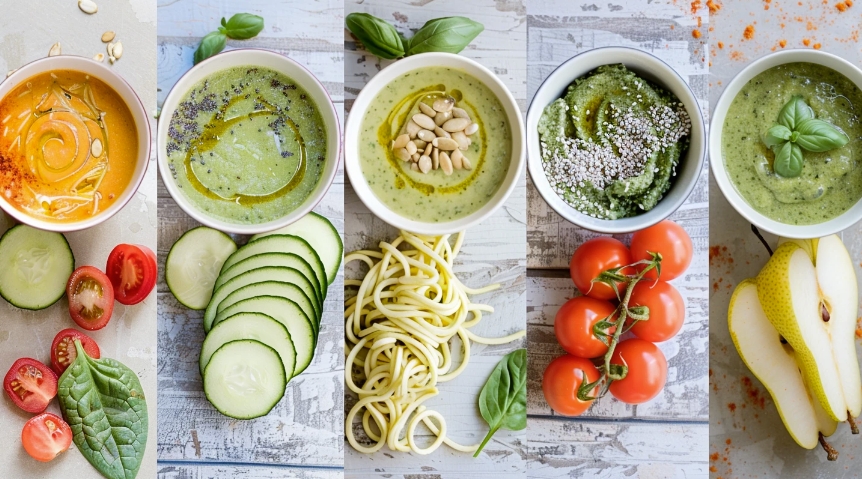
- Breakfast (325 Calories). Smoothie with spinach, coconut milk and banana. Includes a dairy-free powdered protein.
- Snack (10 Calories).: A refreshing snack of sliced cucumbers and cherry tomatoes dressed with balsamic.
- Dinner (400 calories): Lentil Soup with Carrots, Tomatoes and Kale. Served with gluten-free and dairy-free Cornbread. A hearty, warming meal.
- Snack (10 Calories).: Pears with pumpkin seeds. A combination of sweet and crunchy.
- Dinner (880 Calories).: Pesto pasta with zucchini noodles, topped with shrimp grilled on the grill. A delicious and satisfying dinner.
Paleo Friendly Picks: Meal Plan 7.
This Paleo meal plan focuses on vegetables, fruits and lean meats. It avoids dairy and processed food and returns to a whole and unprocessed diet.
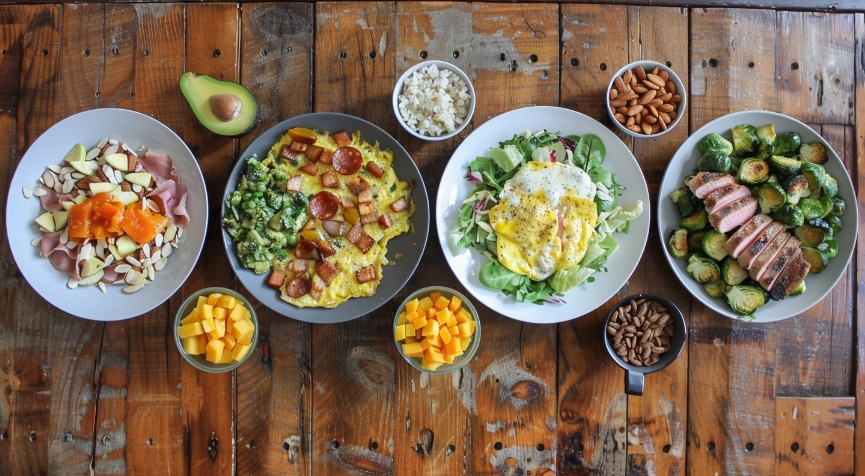
- Breakfast (325 Calories).: An omelette filled with peppers, ham and onions.
- Snack (10 Calories).: a small avocado with sea salt and lemon juice, an easy but nutrient dense snack.
- Dinner (400 calories): A salad with chicken, greens, cherry tomatoes and cucumber, dressed in olive oil with lemon juice.
- Snack (10 Calories).: A handful of almonds with a few dried mango slices for an energy boost.
- Dinner (880 Calories).: A hearty Paleo meal with sweet potatoes and roasted Brussels sprouts.
Diversity and Balance in Nutrition
Achieving a nutritional balance in your diet means consuming the right proportions of macronutrients–proteins, fats, and carbohydrates–that your body needs for optimal function, energy, and health. Our 1800-calorie meal plans are carefully designed to achieve this balance. They provide a wide variety of food that promotes overall health.
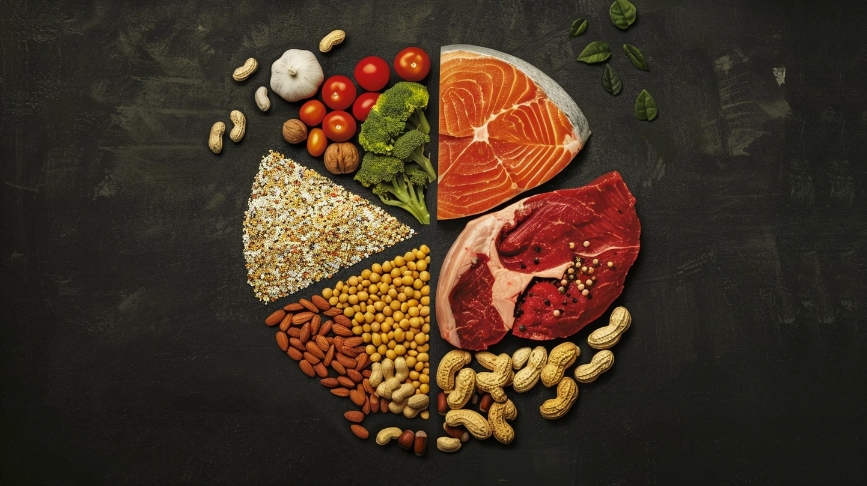
- The proteins are necessary for the building of tissues and repair, as well as hormone production and immune support. Every meal plan contains high-quality sources of protein, such as lean meats and legumes.
- Fats play a vital role in absorbing vitamins and providing energy. They also support cell growth. Avocados, olive oil, almonds and seeds are all good sources of healthy fats.
- Carbohydrates provide the body with its preferred source of energy, glucose. We focus our plans on complex carbohydrate sources, like whole grains, fruit, and vegetables to give us sustained energy.
The vitamins and minerals in food play a key role in many bodily functions. The meal plans are rich in different foods so that you get a wide range of micronutrients. Citrus fruits and leafy greens for calcium; nuts and seeds, for zinc and magnesium, as well as fatty fish, for omega-3 and vitamin D.
Plan your meals and prepare them with these tips
Planning and preparing your meals can help reduce the time you spend in the kitchen and save money. It will also allow you to achieve your nutrition goals.
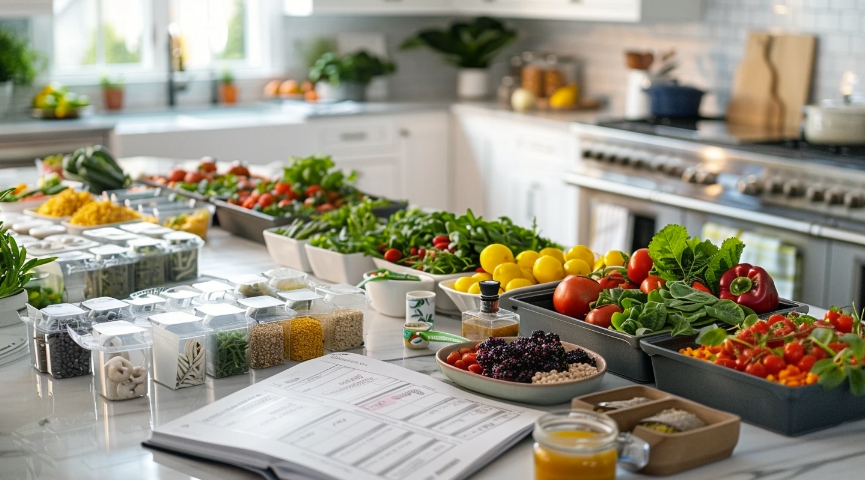
- Preparing Meals: Spend a couple of hours each week preparing large quantities of meals. Prepare proteins, cook grains and vegetables. They can be stored in the refrigerator for quick assembly on busy days.
- Batch cooking: Prepare larger portions that will freeze. You can freeze and then reheat soups, stews and casseroles.
- Shopping Strategies: Buy seasonal products and certain items in large quantities to save money. Store brands are often cheaper than the name brand items without compromising on quality.
You can adapt your meal plans to meet specific goals
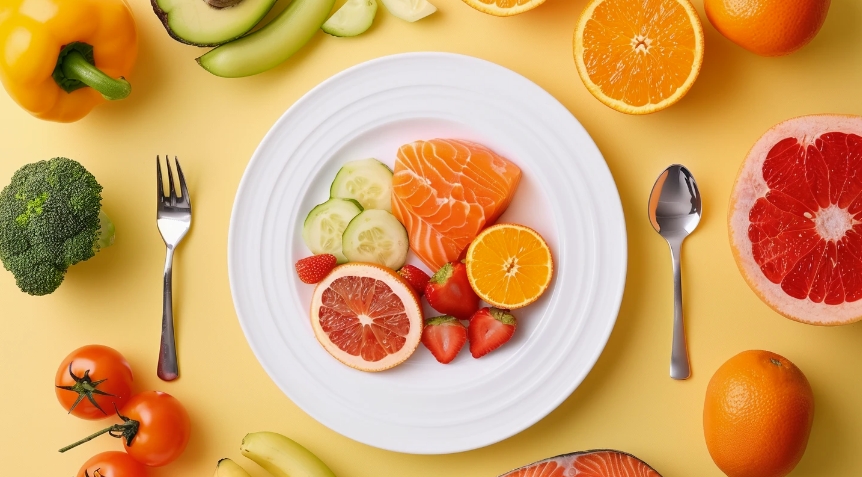
You can adjust our 1800-calorie meal plans to meet your weight loss, muscle growth, and maintenance goals. Here’s how:
- Lose Weight: Include more high-volume, low-calorie foods such as vegetables and fruit that will help you to feel satisfied with fewer calories. Reduce the portions of foods high in calories.
- Muscle Gain : Eat more protein and eat foods that are high in calories, such as nuts and seeds. Add a snack after your workout to help you recover and grow.
- Maintain: Follow the menus as is, but make sure you are active enough to burn off the calories. Adjust your meal plan based on the activity you are doing and how hungry you feel.
- Portion control: Measure with measuring cups or a kitchen scale. You can also use visual cues, such as a meat piece the size of an entire deck of cards, to help you keep your portions under control. You can use your hunger or fullness signals as a guide to how much you should eat.
When adjusting meal compositions to meet individual requirements, you can swap out ingredients or modify them while still keeping in mind the overall nutritional profile of your meal. You can replace animal protein with plant-based options for vegetarians, or choose gluten-free grains for people with gluten sensitivities.
Include Mindful Eating in Your Daily Routine

It is important to engage all your senses in order to fully enjoy every bite. You should also be aware of the impact food can have on both feelings and body shape. It can turn your meals from being a simple meal into an experience that enhances satisfaction, and helps maintain a healthy relationship to food.
Eat Mindfully: Tips to Help You Be More Conscious
- Concentrate on Your food: Avoid distractions such as TV and smartphones. Focus on your food’s taste, texture and smell.
- Slow Down – Take it slow with every bite. This will help you to recognize your fullness and appreciate your meal more.
- Pay Attention to your body. You should eat when you are slightly hungry, and stop eating when your stomach is comfortably full.
- Enjoy Your Food : Take into consideration where the food comes from, and how much effort was put in to prepare it. It can help you feel more grateful and appreciate your food.
Keep Hydrated – Supplements to Consider
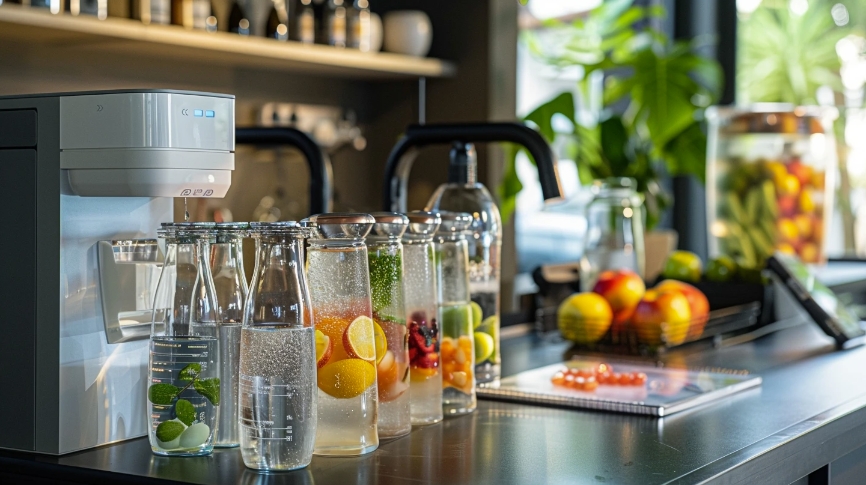
Water is essential for your overall health. It helps with digestion, absorption of nutrients, and energy. Water intake can be as high as 8 glasses of 64 ounces per day, depending on your activity, the climate and even individual health.
Additional Considerations
- While supplements can be helpful in filling in nutritional gaps, they should not replace your whole food diet.
- Determine Needs Consider supplements according to dietary restrictions or goals, such as protein powders for muscle gains.
- Select Wisely : Choose products that are third party certified to guarantee quality and safety. If you are taking medications or have a health condition, consult a doctor.
The conclusion of the article is:
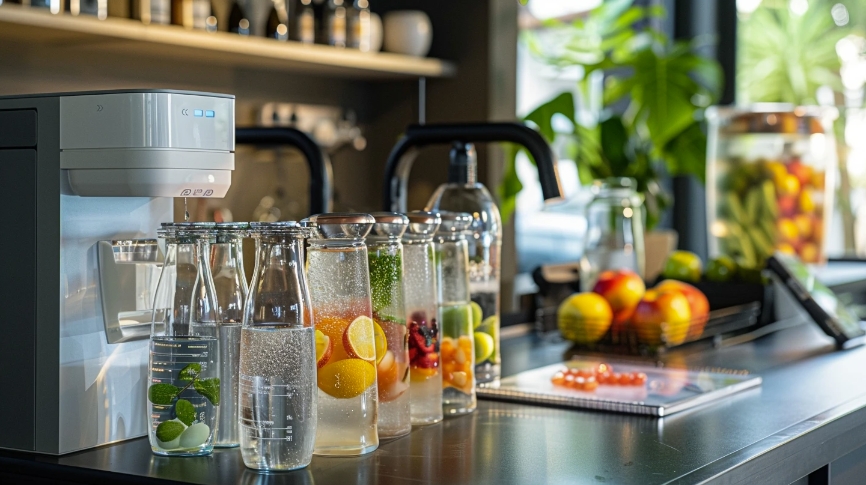
Anyone who wants to achieve a balance between dietary needs and health goals can benefit from an 1800-calorie meal plan. The guide shows that eating healthy doesn’t need to be time-consuming or expensive with careful planning. You can make your meal plan flexible and customized to suit you, and enjoy a healthy and enjoyable diet.
Fit Senpai: Elevate Your Nutritional Games
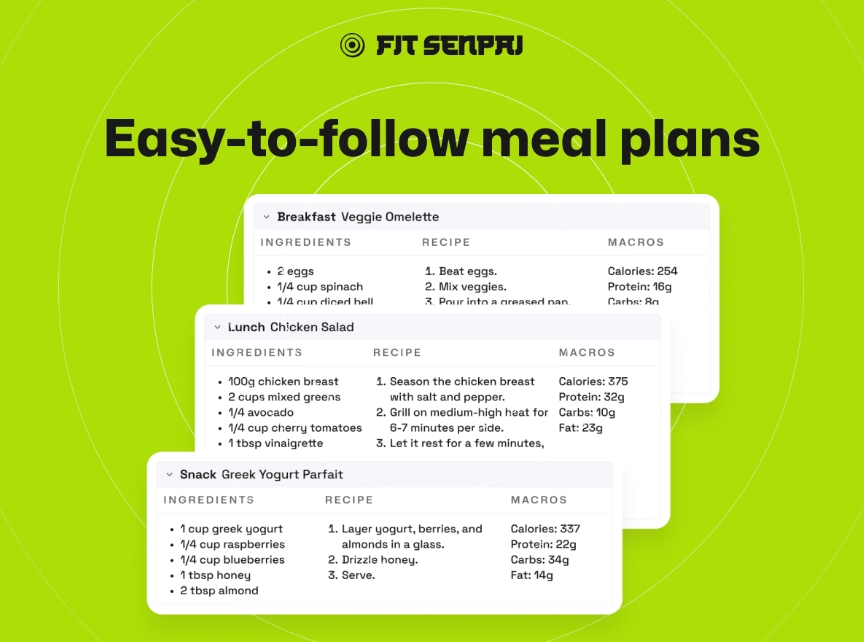
Streamline the 1800-calorie meal plan using fit Senpai. The app customizes diets to meet nutritional requirements and goals, but it also makes grocery shopping easier with its handy list. With personalized meal suggestions, and a shopping list that is tailored to your diet plan, you can easily achieve a healthy balanced diet.
Fit Senpai makes meal planning easy. You can enjoy tailored meal plans with 1800 calories and an extensive grocery list. These are specifically tailored to suit your lifestyle. Join Fit Senpai now!
FAQ
- Is it possible to switch between meal plans? Of course! You can mix and match meal plans according to your tastes and nutrition needs.
- What can I do to ensure that I stick to my 1800 calorie limit?
Use a food tracker app or journal to keep tabs on your daily calorie intake. - Can a diet of 1800 calories be used to lose weight?
A balanced meal plan of 1800 calories can help you achieve your weight-loss or maintenance goal, depending on the metabolic rate that suits you and how active you are. A nutritionist will provide you with personalized advice.

